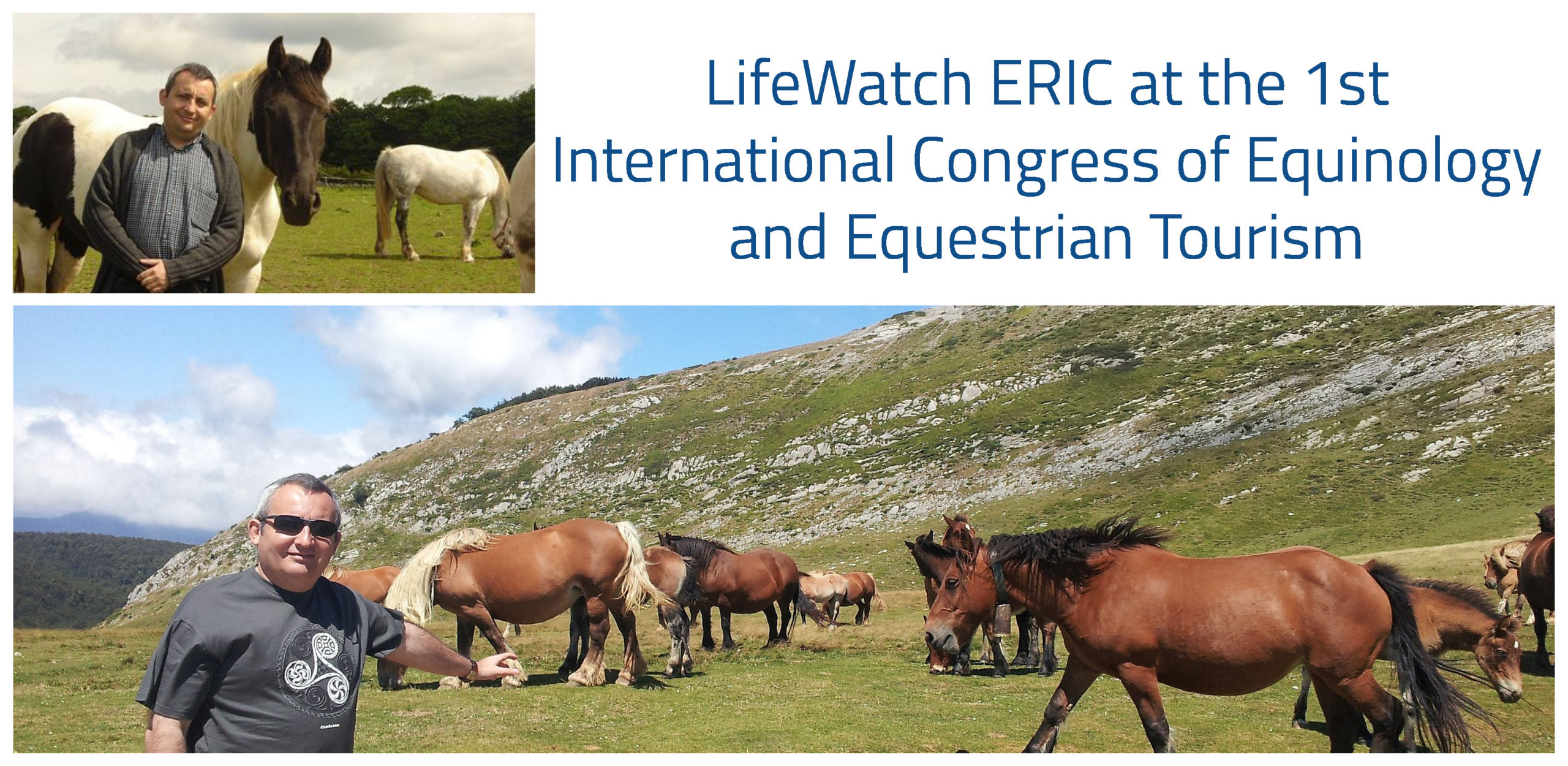
Dr Juan Miguel González-Aranda, CTO, represented LifeWatch ERIC yesterday at the 1st International Congress of Equinology and Equestrian Tourism. The interdisciplinary event took place at the Polytechnic Institute of Viana do Castelo on the northern Portuguese coast. It was held in the Professor Lima de Carvalho Auditorium and co-organised by Dr Enrique Alonso-García, one of the founders of LifeWatch ERIC, who gave a presentation entitled “The International ‘Wild/feral horses in National Parks’ initiative: the case of the Iberian Peninsula”.
The aim of the Congress was to investigate a range of research themes based on the scientific studies of equines, as research on equine social behaviour and cognition is still scarce, despite horses having traditionally been the most-researched animals in Europe due to their major role in the dynamics of human societies. In fact, the event was split between both social and scientific aspects of equine research, which the project behind the event maintains requires the creation of an independent and holistic scientific discipline.
Dr González-Aranda gave a scientific intervention as part of the panel “Language, Intelligence and Cognition”, with his presentation: “e-Horse: the EU LifeWatch ERIC initiative on digital transformation and the role of equids in biodiversity conservation and sustainable use” (e-Horse: a iniciativa EU LifeWatch ERIC sobre transformação digital e o papel dos equídeos na conservação da biodiversidade e uso sustentável).
The e-Horse Initiative
e-Horse is the LifeWatch ERIC initiative on digital transformation to understand the role of equids in biodiversity conservation and sustainability. As a distributed e-Infrastructure, LifeWatch ERIC provides state-of-art ICT in the form of outstanding analysis techniques such as Geodesign to support decision and policy makers in addressing societal challenges. It takes a transdisciplinary scientific evidence-based knowledge approach, applied in key sectors such as Agroecology, Invasive Alien Species impacts, and more. The work LifeWatch ERIC does in integrating micro-, meso- and macro- scales (which presents a challenge in terms of data heterogeneity) contributes towards the accomplishment of the EU Biodiversity Strategy 2030 & the Green Deal, as well as the SDG 2030 objectives.
The e-Horse initiative involves other world regions besides Europe, among which Latin-America and the Caribbean, the USA, Africa, Japan, etc. It is therefore seen as an international referent in the holistic approach to horse livestock and ecosystem sustainable management. Together with the provision of advance services dealing with topics such as genetics, ethology, cultural heritage, etc., it fosters sustainable socioeconomic development beyond preservation activities. So far, two areas of e-Horse activity are of note: (a) Feasibility study of grassland monitoring for wild and domestic horse habitat mapping, making use of the EU-Copernicus programme for operational monitoring applications based on high resolution and acquisition frequency of Sentinel-1 (radar) and Sentinel-2 (optical) satellites, and (b) Development of equestrian sustainable ecotourism activities in the Portugal-Spain transboundary ecosystems corridor through cultural heritage trails.
Overall, e-Horse supports the provision of proper ecosystem sustainable services by demonstrating the essential role that horses play in recovering ecosystems worldwide. A concrete example of this is the case of mitigating the “drying of the oaks” disease in the “dehesas-montados”, with e-Horse linking cultural and biodiversity policies in instances of private sector involvement, through the development of citizen science activities.